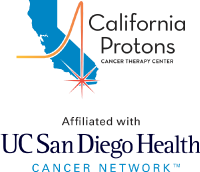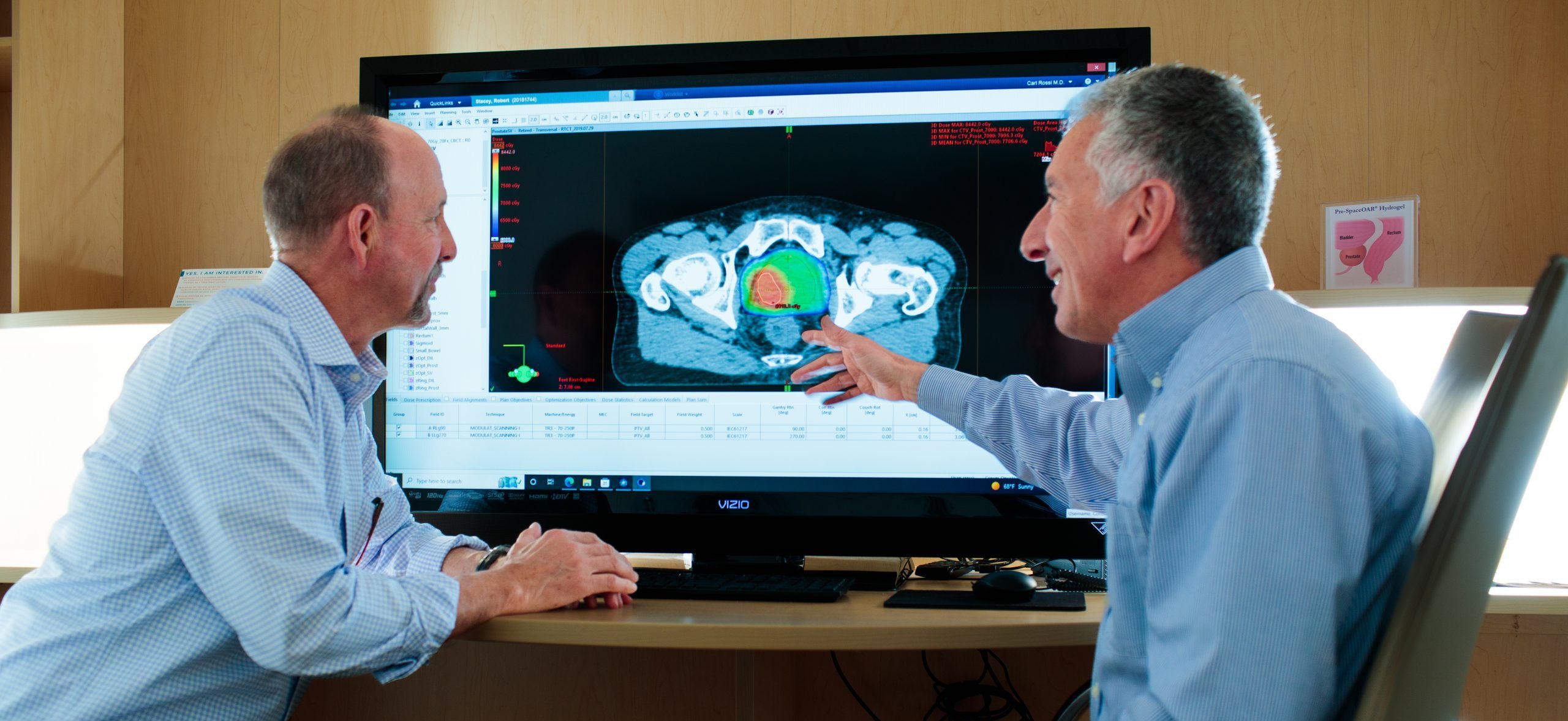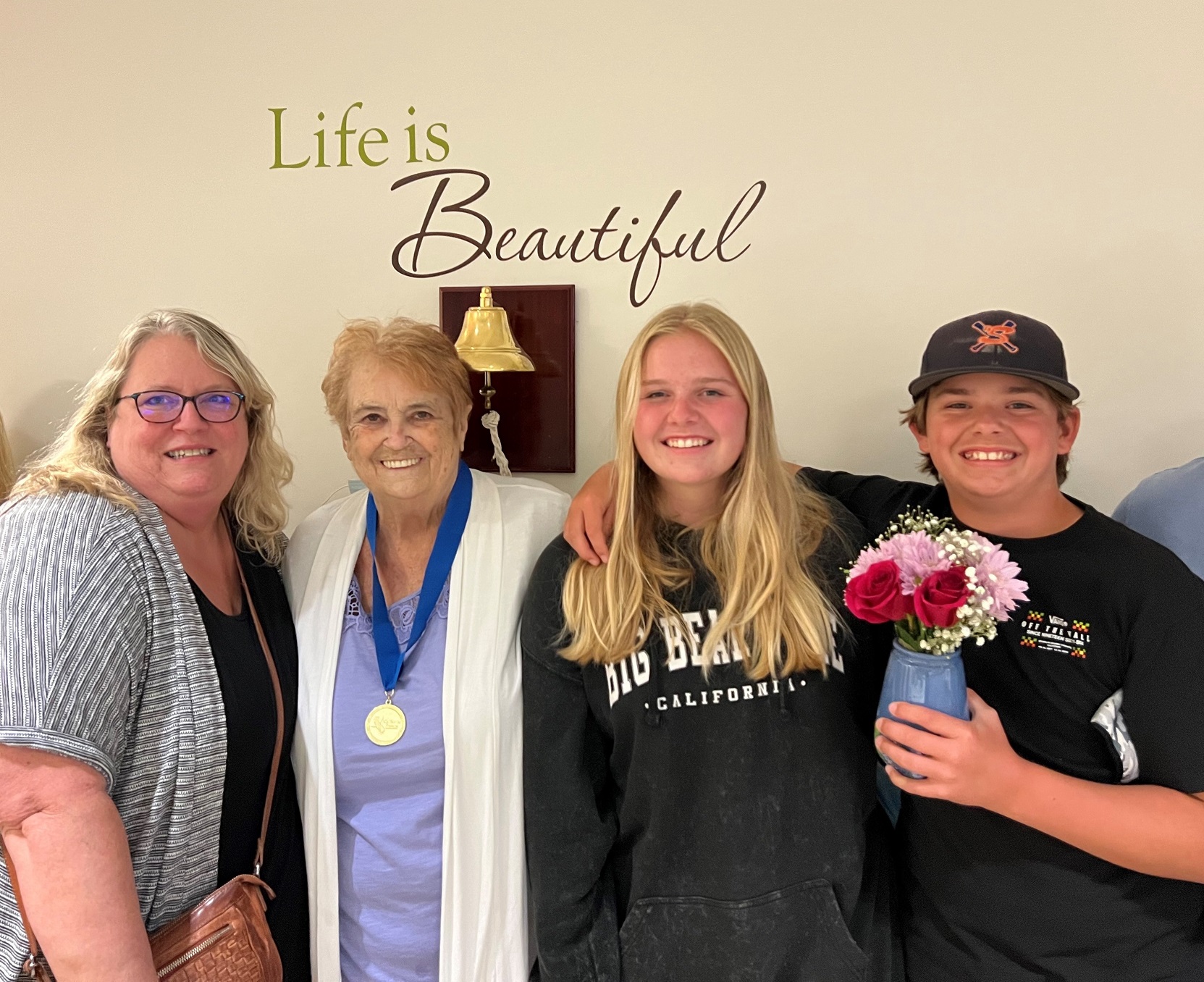How to Help Your Loved One Choose A Cancer Treatment
Navigating Cancer Treatment Options
Receiving a cancer diagnosis can turn a family member or a friend’s world upside down. We all want to do everything in our power to help our loved ones grappling with that sudden shift in reality. Yet in situations this complex, it can be hard to know how to support a cancer patient emotionally — which experts to consult, which questions to ask, or how to seek out treatment plans tailored to your loved one’s condition and lifestyle.
At California Protons, we recognize that everyone’s journey to recovery is a personal process that varies patient by patient. So we created a general guide for those wanting to help loved ones who have been diagnosed with cancer — as well as those with their own diagnosis — understand the importance of an accurate diagnosis, learn more about the range of treatments available, and gain the confidence to build a team that can do everything from discussing the first lab results to creating a survivorship plan. Read on for our advice on how to become better equipped as someone who your loved one can lean on when they may need it the most.
Proton Therapy Treatment
Among the first decisions that someone diagnosed with cancer will need to make is which type of cancer treatment they feel comfortable undergoing. Our clinic specializes in proton therapy, a method of cancer treatment that’s more accurate than other forms of treatment. We harness protons — subatomic particles with a positive charge — to deliver radiation to a tumor so that it doesn’t travel beyond the tumor wall. Proton therapy is particularly beneficial for patients who are vulnerable to radiation, or who have already undergone radiation treatment to the same area (or an adjacent area) of the body that needs to be treated.
Proton therapy is less invasive than standard x-ray radiation, which is another form of external beam radiotherapy. One of the downsides of standard x-ray radiation is that it delivers energy along its path before reaching a tumor, and then again as it exits the body — which means it often deposits radiation to healthy organs that surround the treatment site. But at California Protons, we use pencil beam scanning technology that controls and conforms radiation to the size and shape of a tumor. That gives our physicians the ability to navigate a proton beam across a tumor in fine strokes, increasing the intensity and dosage within only the tumor itself.
California Protons was the first clinic in the country to offer pencil beam proton technology in all five of our treatment rooms. But we also use a number of other technologies that distinguish our proton treatment from other types of therapy:
- Cone Beam CT Imaging
Used in conjunction with pencil beam scanning technology, Cone Beam CT imaging reduces the radiation dose, size of the scanner, and the time needed for scanning that regular CT imaging usually requires. A full scan typically takes under a minute, and the radiation dosage is up to one hundred times less than that of a regular CT scanner.
- Cyclotron
The cyclotron is a 90-ton device that generates about 5 trillion protons per second and accelerates those protons along a spiral path at roughly ⅔ the speed of light to create a beam that targets tumors with state-of-the-art precision. Traveling from the cyclotron to the beam line — which spans the length of our building — the proton beam arrives into two fixed beam treatment rooms, or three rotational gantry rooms through a specialized nozzle that can rotate to achieve an ideal treatment angle for each patient.
- Varian Probeam Proton System
As an innovator in proton therapy, we use one of the most sophisticated proton systems in the US, offering advantages such as laser-like precision, minimal side effects, fast treatment times, lower incidence of secondary tumors, and the capacity to treat larger and more irregularly shaped tumors.
Knowing Your Cancer Treatment Options
Even though we specialize in proton therapy, we understand that the best treatment plan is personalized to the patient, taking into account your medical history, the type of cancer, and its stage of advancement. Here are some other cancer treatment options, aside from proton therapy, that you or your loved one might consider.
- Surgery
The best clinics that specialize in cancer surgery use the most advanced imaging technology in the field to assess tumors. They’re also equipped to use minimally invasive techniques like robotics. Physicians often operate surgically in tandem with chemotherapy or radiation therapy.
- Chemotherapy
First used in the mid-1950s, chemotherapy, or “chemo,” refers to the use of drugs or medicine to eliminate cancer and prevent it from spreading. Today oncologists consider chemotherapy one of the most effective cancer care treatments. If your care team recommends chemotherapy, you should discuss which type of chemo is right for you.
- Radiation Therapy
Proton therapy is just one subset of radiation therapy, which uses high-energy radiation to damage the DNA of cancer cells and shrink tumors. Some forms of radiation therapy target an area from a few different angles. Others consist of tiny radioactive pellets placed within the tumor. Another form tracks the movement of a tumor while you breathe, then delivers the radiation only when the tumor sits within the treatment field.
- Immunotherapy
Chemotherapy drugs, designed to attack abnormal cells in the body, can result in serious side effects like toxicity, nausea, hair loss, and fatigue, among others. But immunotherapy focuses on strengthening the immune system to fight off cancer cells.
Physicians practicing immunotherapy sometimes use T cells, a type of white blood cell, because T cells respond to mutations. Since adult cancers have more mutations than pediatric cancers, however, immunotherapy tends to be more effective in fighting adult cancers like melanoma than pediatric cancers like osteosarcoma.
How Can California Protons Help?
Receiving a cancer diagnosis can be so overwhelming that many patients pass through the emotional stages of cancer, which often resemble the stress that anyone undergoing grief or bereavement might feel — shock, fear, anger, loneliness, or helplessness, in no particular order.
One of the most effective ways to help your loved one out of these stages is to team up with a patient care team of world-renowned oncologists who can make you and your loved one feel comfortable and explain to you the progress evaluations at each step. When you work with California Protons, these experts will likely make up your team:
- Radiation oncologists.
Alongside the medical physicists, the radiation oncologists develop treatment plans tailored to each patient. They make sure that the team delivers the proton treatment to the patient with the utmost precision.
- Medical physicists.
Specializing in applying physics to world-class care, medical physicists map out the shape and intensity of the proton beam prescribed by the radiation oncologist, to make sure it delivers the exact dose required.
- Radiation therapists.
Trained by the medical physicists, radiation therapists administer and deliver the daily proton treatment.
- Medical dosimetrists.
These professionals are responsible for the digital development of a patient’s treatment plan (which the medical physicists oversee).
- Oncology nurses.
Nurses coordinate with the patient, the radiation oncologist, and the rest of the care team to help patients understand their treatment overview and ensure that the process is continuing smoothly.
- Dietitian.
Meetings with a Registered Oncology Dietitian provides each patient with nutrition support to help them navigate their way through proton treatment focusing on side effects, nutritional needs and supporting the body during radiation.
- Patient navigator.
The Patient Navigator assists in securing lodging accommodations for treatment duration and financial assistance for treatment related expenses such as transportation, lodging, miscellaneous bills and more.
- Oncology social worker.
The oncology social worker provides emotional support, short-term counseling, psychoeducation, referrals to community resources, and helps you manage non-medical challenges cancer diagnosis and treatment bring.
Plan your visit today.
The expertise of your care team can result in reduced side effects, improved outcomes, strong cure rates, and an experience that we hope will impart upon your loved one a feeling of calm — confident in a chance for a better tomorrow. Reach out to our concierge service team today so you can plan your proton therapy trip to San Diego. We encourage you to seek out second and third opinions before you decide on the right treatment decision for you. (Most insurance plans do approve second opinions.) We also encourage you to seek out the expertise of California Protons. We’ll focus on making you feel at home, so you can focus on healing.




